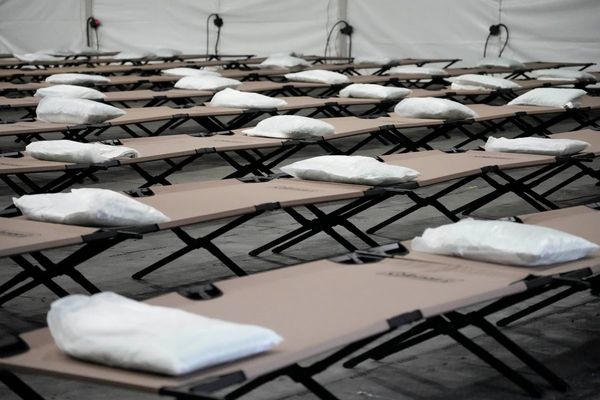While it's something many of us try to avoid, getting covid more than once is definitely possible.
As the virus enters its third year of existence, you or someone you know may have endured multiple cases of covid. One healthcare worker in Spain recently caught the virus twice in less than three weeks, in what is believed to be the shortest period between cases in one person.
The unlucky 31-year-old caught Delta first, then Omicron in less than three weeks. But how likely is this to happen?
READ MORE: Common covid symptom almost everyone with Omicron will have
The Office for National Statistics (ONS) said reinfections were around 10 times higher in recent months (the Omicron variant period), than in the last six months of last year. According to the UK Health Security Agency (UKHSA), a repeat infection is defined by catching covid 90 days or more after a previous infection because people can continue to test positive weeks after their illness, the Daily Record reports.
With that in mind, a UKHSA report from March 6 said 715,154 reinfections have been identified in England since the beginning of the pandemic. To go even further, the agency stated that 7,640 of those infections are third infections and 62 are fourth episodes.
Covid reinfection signs
You'll gain immunity from having had the virus, but the NHS says it's not clear how long it lasts. How strong your symptoms are depends on the sub-variant and your vaccination status.
When Omicron was dominant, the ONS reported, people were "just as likely" to have symptoms in their second infection as in their first. There are ongoing studies on whether symptoms are more or less severe in repeat infections, the CDC says.
The NHS's list of Covid symptoms in adults are:
- a high temperature or shivering (chills) – a high temperature means you feel hot to touch on your chest or back (you do not need to measure your temperature)
- a new, continuous cough – this means coughing a lot for more than an hour, or 3 or more coughing episodes in 24 hours
- a loss or change to your sense of smell or taste
- shortness of breath
- feeling tired or exhausted
- an aching body
- a headache
- a sore throat
- a blocked or runny nose
- loss of appetite
- diarrhoea
- feeling sick or being sick
Symptoms of the virus in children can include:
- a high temperature or shivering (chills) – a high temperature means you feel hot to touch on your chest or back (you do not need to measure your temperature)
- a new, continuous cough – this means coughing a lot for more than an hour, or 3 or more coughing episodes in 24 hours
- a loss or change to your sense of smell or taste
- shortness of breath
- feeling tired or exhausted
- an aching body
- a headache
- a sore throat
- a blocked or runny nose
- loss of appetite
- diarrhoea
- feeling sick or being sick
If you're experiencing Covid symptoms again - or have a high temperature or don't feel well enough to get up to your normal activities - the NHS advice is to try to stay home and avoid contact with other people.
"Take extra care to avoid close contact with anyone who is at higher risk of getting seriously ill from COVID-19," writes the NHS.
"You can go back to your normal activities when you feel better or do not have a high temperature."
Receive newsletters with the latest news, sport and what's on updates from the Liverpool ECHO by signing up here







